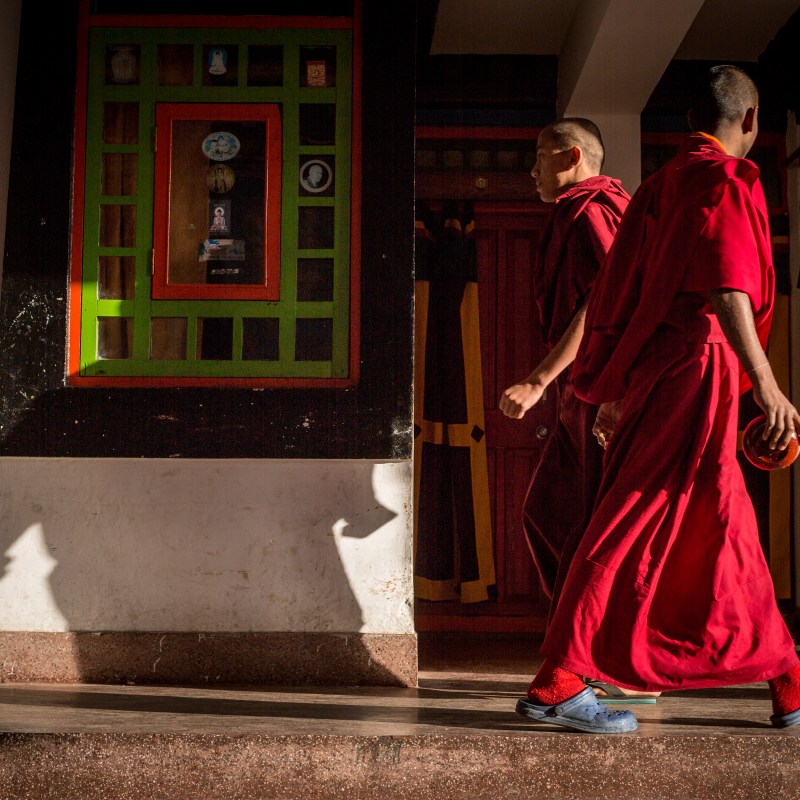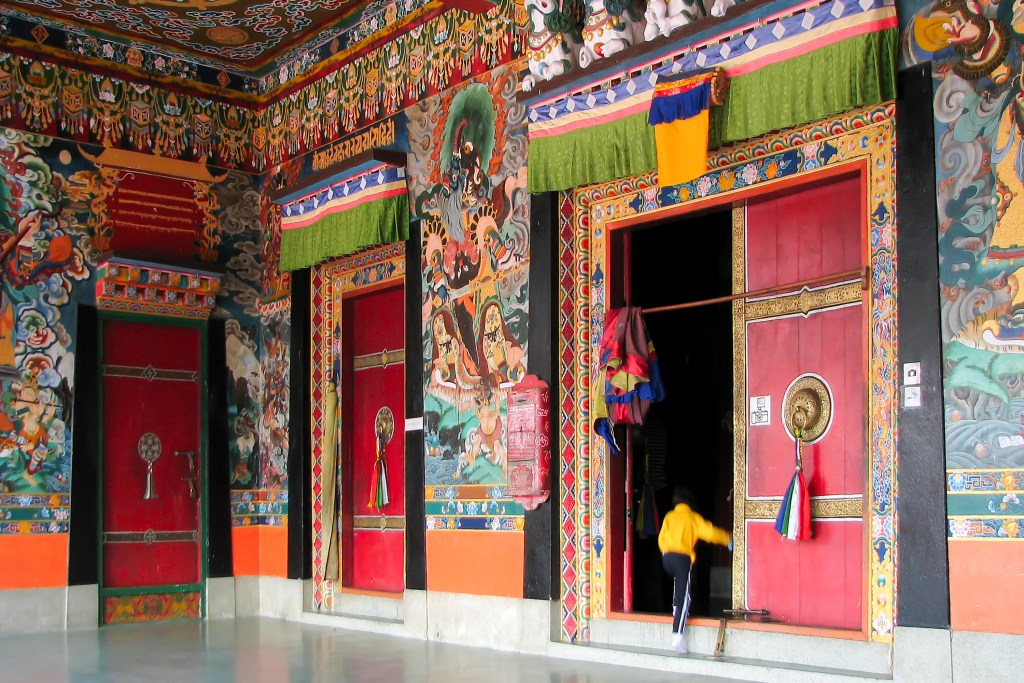
[The World Tour of Oopsies is an ongoing series of travel stories about my first decade of travel. During these adventures and misadventures, I had to unlearn many things I thought I knew about life. Welcome to my miseducation.]
Videos by TravelAwaits
Catch up on the World Tour of Oopsies:
- Chapter 1: The Scorpion
- Chapter 2: The Bucket Shower
- Chapter 3: The Goat Sacrifice
- Chapter 4: The Idol
- Chapter 5: The Boot
- Chapter 6: The Monastery (Part I)
Part I / Still at Rumtek Monastery…

The group’s first day at Rumtek Monastery was a peaceful one. We arrived and stretched our legs, then had a meeting with one of the Karmapa’s regents. (See: Chapter 6.)
We ate, we cleaned our dishes, and then we got ready for our two-day-long silent retreat.
During the retreat, we’d live similarly to the young monks at Rumtek Monastery. We’d rise early, eat our meals, perform basic cleaning tasks, and learn about Tibetan Buddhism from more senior monks. Oh, and we’d be silent. For two whole days.
Like you might have pieced together from previous travel stories in my World Tour of Oopsies, the chance to learn more about Tibetan Buddhism was a big deal to me. The silent element of the retreat was also something I looked forward to.
I wanted to turn inward during my first international travels. I wanted to discover a spiritual practice or, ideally, uncover my life’s highest purpose. Though those desires were more than a bit misplaced, it was heartfelt, and I was open to learn.
But much like the first lesson from Rumtek Monastery, the second one was just as out of left field.
Part II / Laughter echoing up the stairs
What happened next at Rumtek Monastery is easily the most impactful travel moment of my life. I know that’s true because of how often I think of it today, over 15 years later.
Anytime I feel myself getting grumpy and short-tempered, I think back to this moment.
It was the first day of our silent retreat. We were all in high spirits, having woken early and gotten into the rhythm of life at the monastery. In the afternoon, we had a meditation lesson with one of the senior monks.
Rumtek Monastery isn’t just a monastery; it’s also a gompa, making it a spiritual knowledge center where monks learn about important texts, teachings, and lessons that have been passed down in the Kagyu Tibetan Buddhist sect for centuries.
That’s a pretty big deal, and there are monks in training as young as five and six, along with senior monks like the regent.
These monks perform a range of tasks to care for the gompa while also undertaking their studies. As I mentioned above, our small group was joining for a few days; when we weren’t learning or meditating, we were cleaning.
Back to the meditation lesson from the senior monk. We were about an hour into a lesson on mindfulness when we started to hear laughter echoing up the stairs from the hallway where kid-monks were cleaning.
The senior monk stood up and reminded them that we were in a lesson and that they needed to keep quiet.
Another twenty minutes passed, and the sound kicked up again. Once more, the senior monk stood up and went to the hallway to ask them to be quiet.
The kids, who ranged from eight to twelve years old, once more got back to work.
Another thirty minutes went by, and the sounds of playful laughter echoed into the room.
Part III / Having fun
Here’s where you learn something about me: I figured the kids were about to get into a lot of trouble. I think my first thought after the third interruption was something like… It’s ass-whoopin’ time.
To clarify, I did not grow up in an abusive household. But it was the 90s, and it was a time when kids weren’t supposed to interrupt adults. The more adult-like a child acted, the more they were rewarded. And if they didn’t…
I remember being suspended as a kid for being too rowdy in school. At that time, I was even younger than the kid-monks in question here.
I looked down, prepared to mind my business as they were reprimanded.
But nothing happened. The senior monk leading the lesson looked in their direction as the kids kept playing. I saw him take a deep breath, then exhale. Then he looked at our group, smiled, and said, “Well, I guess they’re having fun.”
And that was that. He didn’t try to quiet them again and, within another thirty minutes, the kid-monks had finished their work and moved on.
Sounds very simple, right? And maybe even unmemorable.
But I was seeing some enlightenment-level patience in action, and it was deeply moving. Frustration turned to understanding as the monk realized that expecting children to act like adults might not work.
Then, understanding turned to joy as he realized that the issue was their joyful laughter—and isn’t that silly? To think of a child’s laughter as a problem?
